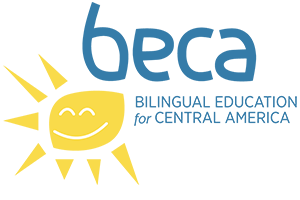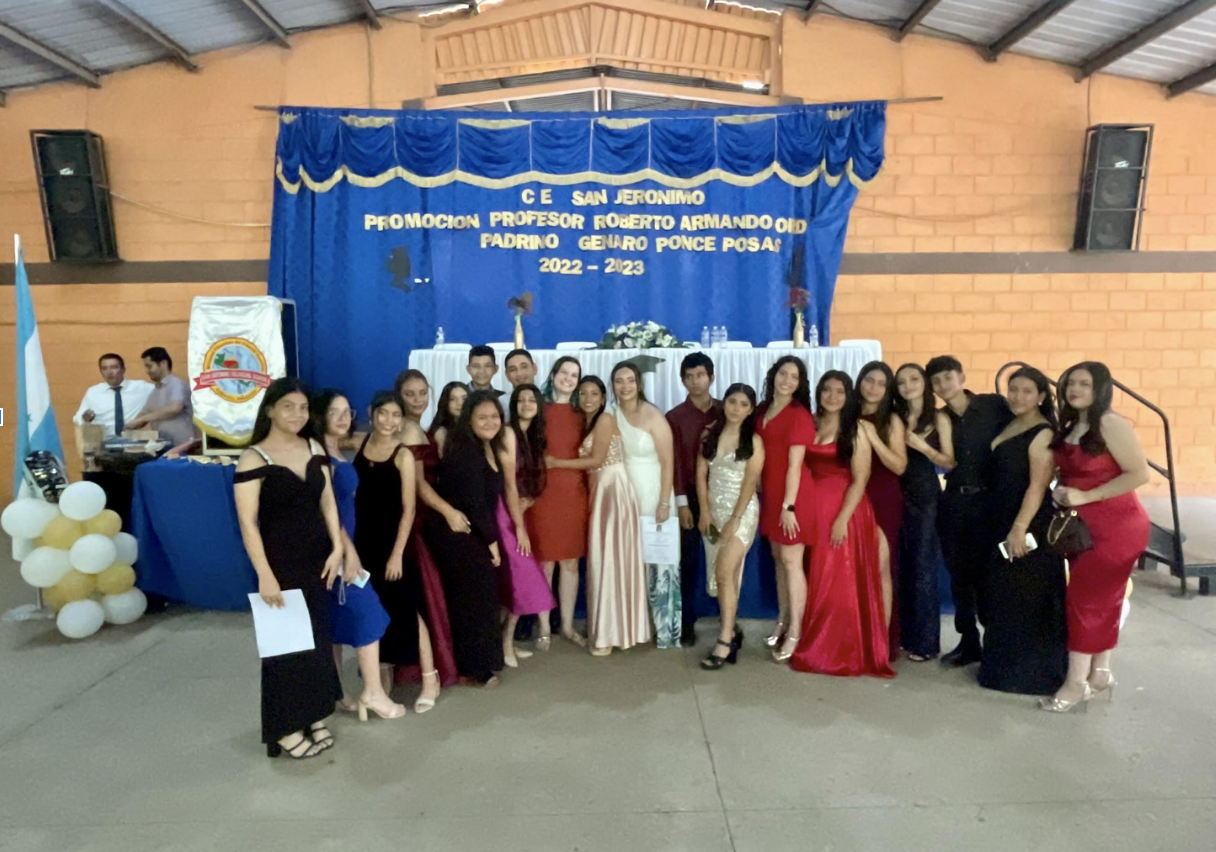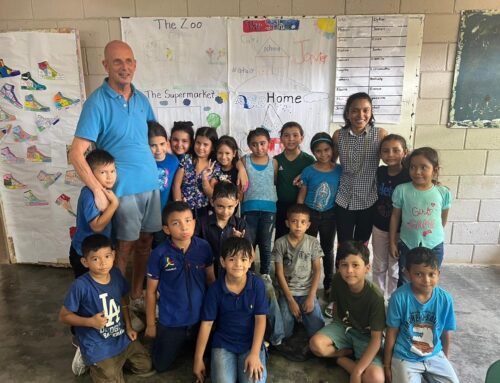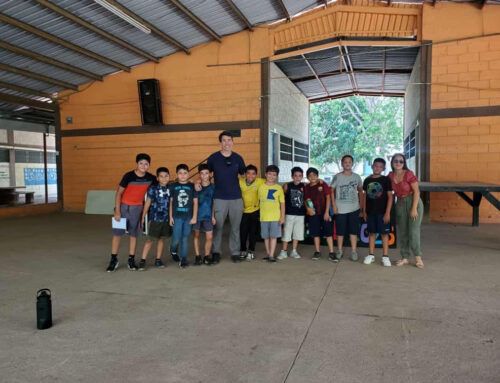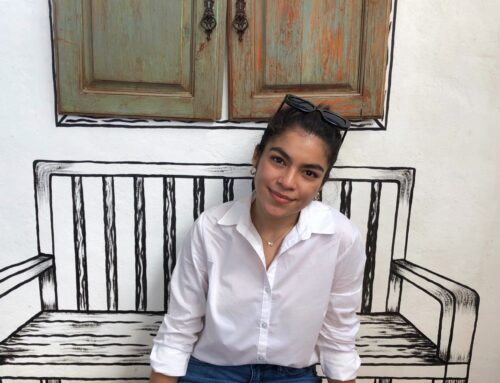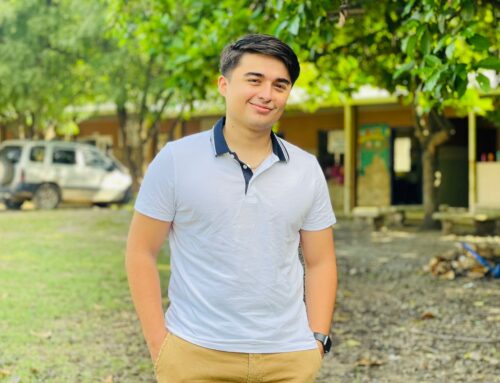“Pencils out first-grade, time for a writing prompt!” Ensue loud groans, hands shooting up in the air about not having a writing utensil, and occasionally a tear or two. It was 2014 at San Jeronimo Bilingual School in Cofradia, Cortes and I was teaching first-grade. The prompt was “write about what you want to be when you grow up”- a writing classic. I even remembered writing about it in my own elementary school in Maryland.
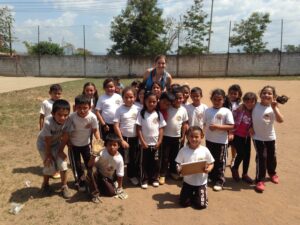
Writing prompts often involved frustration from a lot of my first-graders- the open-endedness of writing about yourself in your second language at age 6 might have been a lot when I look back on it. Some students would immediately start writing with the prompt and others would take a long time- sometimes it was hard to figure out if they didn’t like the question, the writing or both. And to be honest, when I was asked to write this blog, I was in the same place.
Writing has never been my favorite thing to share with others. I like writing- I write in journals and have every day since I was 14. They’re all piled up in two big boxes under the stairs at my parent’s home. I still feel protective of them, asking my family to keep them safe (but not look through them!). When I was asked to write this blog, I was hesitant to share anything about my relationship or time with and in Honduras. To me, my relationships from Honduras are the ones I cherish more than any others in the world. I like to write, but writing about them publically felt a bit exposing and I was reluctant.
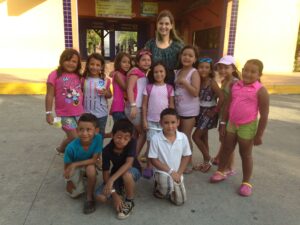
I taught in Honduras from 2014-2016 and taught first and second-grade there. While beginning to write this, I began to think about all the experiences I have had in my life because of my time in BECA. This is including (but not limited to!) lifelong relationships with my students and their families, moving to a country completely different from my own at 22 years old, learning Spanish (in a way my Spanish writers of the 19th century class at my university couldn’t), trying new foods I’ll forever have a craving for, and best friends I still keep in contact with today. As my students grew up, many of my friends from BECA and I grew from our 20s into our 30s. We stayed in contact because not only of the memories we created together in Cofradia but because of the friendships we cultivated along the way.
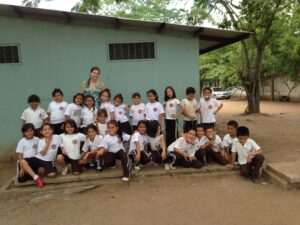
This past June, I went down for my students’ ninth grade graduation at SJBS. As it began to get closer and closer to the time of my flight, I would text my students- are you excited/ are you nervous/ what are you wearing/ what is the theme? (Turns out the theme was gala, which someone forgot to pass onto me and I had to borrow a dress from a student’s parent, who has become my good friend.) When my students and I are this far apart, this is how we communicate- writing via our cell phones.
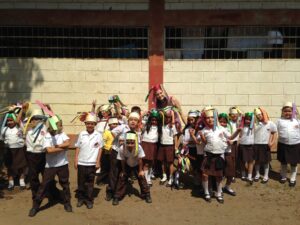
Now in 2023, things have changed. I write weekly to my students but no longer on a whiteboard or a handmade worksheet- through Whatsapp. All hail Whatsapp. What was once something difficult to have my students do, writing is how we communicate with each other now. I often get morning messages with gifs and “Hi Miss Emily”. I told them they could just call me Emily now but I was told during graduation that I would “always be their miss” and “no, that feels too weird.” I had a student’s mother text me last week that her son was reading a book using a technique I taught him. Those little messages I receive on Whatsapp help keep me connected to my students as the years pass by.
Even when I had students move to the states, writing little blurbs on whatsapp was how we have stayed in touch. We record voice notes and each year, their English vocabulary expands. What was once a maligned activity that resulted in a spectrum of emotions from joy to anger to frustration to sadness, writing is our key to sharing the love and respect we have for each other.
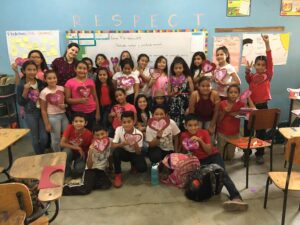
I was 22 when I moved to Honduras. I left when I was 24. I am now 31 and besides the COVID- years, I have visited my students every year. That was something I told them I would try to do, and it has helped keep my relationship strong with them. They have different interests now, but some things always stay the same- asking to see old photos of us together, laughing at a time I ate carne asada from a stick like a lollipop, and telling me about their favorite new music.
The steady nature of my visits is how my students and I relay the love and care we have had for each other over the years. Every year I visit, I bring my students something. I usually always bring photos for them to keep. The students love to see how we have all grown over the years and always remind me they don’t remember being “that little”. When I visited this year, I brought keychains- one side had a photo of us from 2014 (individual and group) and the other side had one of them from 9th grade. The students were ecstatic and one of them showed me at his graduation party that he has every photo I have ever given him on his wall. When I saw that he kept those photos in his home, and were something he looked at every day, I saw the importance we still have for one another. Sometimes I feel nervous on the plane going down (maybe because I don’t like flying), but I have never once regretted my visits to Honduras.
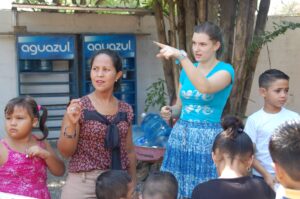
When I tell a friend or current colleague whenever I have a planned trip to Honduras, there’s usually two responses- one is the word “again?” and the other is “Honduras- what could you be doing there?” I think of how to compress my two years and ten plus visits into a sentence or two. I usually respond with something like “I lived there for two years and it’s really special to me”. That seems like a simplification, but it’s the best I can do. After all, they can always read this blog.
